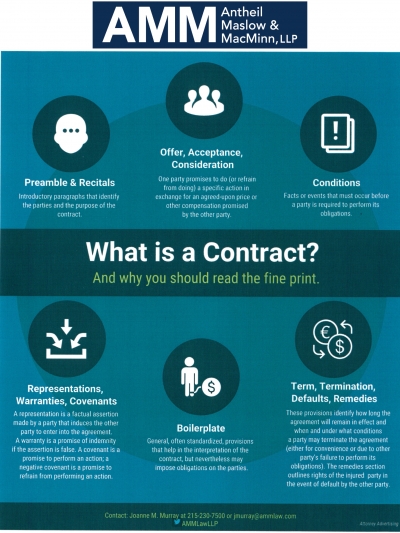AMM Blog
Welcome to the AMM Law Blog, a tool to help you keep up to date on current legal developments over the broad spectrum of our practice areas. We welcome your comments and suggestions to create a dynamic forum that will be of interest to readers and participants.
Attention Employers: New Department of Labor Ruling on Overtime Pay
Written by Patricia Collins Wednesday, September 25 2019 19:01On September 24, 2019, the United States Department of Labor announced a new final rule regarding eligibility for overtime pay. The rule requires employers to revisit their classifications of employees as exempt in order to ensure compliance.
As I discussed in previous articles (Texas Federal Judge Blocks New Overtime Rules and Speaking of Overtime Rules and One Final Overtime Update) the DOL announced rules in 2016 to dramatically increase the salary threshold in order for certain categories of employees to meet the standards for exemption from federal overtime requirements. The rules were met with litigation and a stay of their enforcement.
The new final rule raises the salary threshold from $455 a week to $684 a week, or $35,568 a year. Employers may now use nondiscretionary bonuses and incentive payments, such as commissions to satisfy up to 10% of the salary level. Employees will still have to meet requirements related to their duties in order to meet the standards of exemption for the overtime requirements.
This final rule will become effective on January 1, 2020. As we advised in 2016, employers should take steps to ensure compliance by the end of the year. The first step is to identify any employees who are classified as exempt but are making less than $422 a week, and develop a plan to reclassify those employees, or revise their compensation. This is a good time to revisit the job duties of those employees to ensure that they meet the applicable standards for exemption in terms of their duties as well as their salary. This is also a good time to review overtime policies to ensure appropriate recordkeeping, efficient use of overtime and compliance with applicable law.
AMM can help employers navigate these new rules and review their employee classifications to ensure compliance and minimize risk.
What is a Contract: Part 3: Conditions - When Is a Promise No Longer a Promise?
Written by Joanne Murray Wednesday, August 21 2019 14:55This post continues my series explaining the main elements of a contract, which are outlined on the attached infographic. My goal is to demystify some of these basic provisions to help business owners have a better general understanding of what they are signing.
Another key element of a typical contract is a condition. A condition is an event that must occur or a fact that must be true before a party is obligated to perform his obligations under a contract. Conditions are used to allocate risk by making a party’s obligations, which would otherwise be absolute, dependent on circumstances that are usually outside of that party’s control. The risk of those circumstances not occurring is thus shifted to the other party. For example, your agreement to buy a parcel of real estate might be conditioned on your ability to obtain financing. If you are unable to get financing, you are not obligated to proceed with the sale. Your failure to perform your obligations is excused and is not a breach; the seller will have no claim for damages against you based on your failure to perform. A condition is not necessarily tied to a third party’s performance of an action (such as a bank agreeing to lend money to the buyer) but is sometimes linked to the performance of an obligation by the other party. Some conditions are dependent on weather or similar events that are altogether outside of the contracting parties’ and third parties’ control.
Sometimes a condition is drafted so that its non-fulfillment excuses some, but not all, of a party’s obligations under the agreement. As a result, if the condition is not met, the agreement remains in force as to all other obligations. On the other hand, a condition may be drafted so that the entire agreement will terminate if the condition is not satisfied (such as the property sale example above). It is important to note that the party benefitting from the condition may choose to waive the condition and proceed with performance under the agreement. Further, if the party whose obligations are conditioned performs those obligations even though the condition has not been satisfied, he may be deemed to have waived the condition.
Conditions are not necessarily identified in a single specific section of a contract, but often are sprinkled throughout the agreement where the parties’ obligations are identified. Because of the impact of an unsatisfied condition, it is important to be able to recognize conditions on the other party’s obligations before you enter into the agreement. Look for words such as “if”, “provided that”, “in the event that”, “subject to”, “on the condition that”, “conditioned on”, and “contingent on”.
Before you sign any contract, you should be sure to assess whether any of your obligations should be conditioned on the occurrence of facts or events. If so, it is important that those conditions be clearly identified. Similarly, you should review the agreement to identify any conditions to the other party’s obligations and their impact on the agreement overall and your rights under the agreement. Ask yourself:
• Does the agreement set out unrealistic, vague or unpredictable conditions under which the other party could be released from its contractual obligations to me? Will I have incurred unnecessary expenses prior to the determination whether the condition has been satisfied (e.g., purchase of supplies or services)?
What impact will a release of the other party’s obligations have on my business (e.g., finding a substitute vendor)?
• What actions or omissions (by me or key staff) could result in a release of the other parties’ contractual obligations?
• Are any conditions on my performance needed to provide a way out in the case of prohibitive or unacceptable changes in circumstances down the line?
In summary, contractual agreements will ultimately only yield the intended benefits to your business if they are enforceable, and that means understanding under what conditions some or all of the other party’s obligations might be excused.
Stay tuned for Part 4 of this series, which will move on to the next contract element shown on the infographic: Representations, Warranties, and Covenants.
Important Reminder for Home Improvement Contractors in Pennsylvania
Written by Stephanie M. Shortall Wednesday, August 14 2019 20:21In 2008, Pennsylvania enacted the Home Improvement Consumer Protection Act (HICPA) designed to protect home owners from unscrupulous contractors. However, it is also a trap for the unwary home improvement contractors. In addition to its registration requirements, HICPA specifies what must be in a contract for home improvement services and what may not be in these contracts.
HICPA applies not only to contractors performing renovations and remodels, but also many other types of services including most landscaping work, security systems, fencing companies and concrete work. Any individual or company performing these services needs to be aware of the requirements imposed by HICPA and can read more in this client alert.
Many companies use restrictive covenant agreements with key employees to guard against economic harm to the company by an employee who takes a job with the company’s competitor and/or tries to persuade the company’s customers to stop doing business with the company. These are particularly common with sales staff. In Pennsylvania, these covenants will generally be upheld if they are narrowly drawn to protect the employer’s legitimate business interests and if the employee has been given meaningful consideration in exchange for agreeing to be bound by the covenants. To learn more about Noncompetes, visit our Navigating Noncompetes blog series in the AMM Employment Law Blog.
Companies recognize that merely doing business with other firms can also be risky when it comes to protecting their interests in employees and customers. Consequently, it has become customary to include “no hire” provisions in contracts to prohibit a party from hiring away the other party’s staff. These clauses are particularly common in agreements in the technology field and in non-disclosure agreements that parties often enter into when evaluating whether or not to begin a business relationship. The viability of these provisions is in doubt in Pennsylvania, where the Pennsylvania Superior Court struck down a no-hire clause in a service agreement earlier this year. The Pennsylvania Supreme Court has agreed to hear the case.
In Pittsburgh Logistics Systems, Inc. v. BeeMac Trucking, LLC, the trial court held that the no-hire clause was unenforceable because it prevented individuals from seeking employment with certain companies even though those individuals had not agreed to or been compensated for the restriction. It is important to note that in a separate action, Pittsburgh Logistics Systems (“PLS”), the company attempting to enforce the restrictions against BeeMac, was unsuccessful in its efforts to enforce the restrictive covenants contained in four employees’ employment agreements, each of whom left to work at BeeMac. The trial court concluded that the covenant not to compete was oppressive and overly broad since it had an unlimited geographic scope. The court viewed PLS as having “unclean hands” and refused to enforce the restriction at all.
The Superior Court agreed with the trial court and held that the no-hire clause was unenforceable as a matter of law. The Superior Court was influenced by the lower court’s holding that the non-compete covenants in the employment agreements were not enforceable, noting that it would be unfair for PLS to achieve the same result by using a contractual no-hire provision in its contracts with other companies.
Two Superior Court judges dissented, drawing a distinction between a no-hire provision in a contract between two companies and a non-compete clause binding employees. They reasoned that the no-hire clause did not restrict the employees’ actions; rather, the clause was a bargained-for restriction in recognition of the fact that BeeMac would have access to PLS employees and know-how. The dissenting opinion suggests that the correct analysis is whether the no-hire clause was a reasonable restraint on trade. Using that test, the dissenting judges would have enforced the clause and granted the injunctive relief requested by PLS to prevent BeeMac from “enjoy[ing] the benefit of its purported breach” and “leverag[ing] the specialized knowledge that PLS’s former employees acquired while under its employment.”
It will be interesting to see how the Pennsylvania Supreme Court views these issues when it hears this case. Stay tuned for further developments.
Enforcement of Foreign Judgments in Pennsylvania
Written by Thomas P. Donnelly Friday, July 19 2019 14:38As commercial litigators, we frequently field calls from counsel in other states seeking to enforce judgments entered in a state other than Pennsylvania against assets of the judgment debtor which may be identified within the Commonwealth. Under Pennsylvania Law, a judgement creditor may effectively transfer a judgment in two ways; the traditional approach of a civil action to enforce judgment at common law or pursuant to the terms of the Uniform Enforcement of Judgments Act. The Uniform Act prescribes the mechanism for transfer of the judgment and the procedures which follow thereafter.
The effectiveness of a foreign judgment is based upon the full faith and credit clause of the United States Constitution and grounded in principles of comity among the several states. Pennsylvania, like many other states, has adopted the Uniform Enforcement of Judgment Act in an effort to streamline the process of transferring a judgment from a “foreign” – meaning a different state – court. The Act merely requires that a certified copy of the judgment and relevant docket entries be filed with the Prothonotary together with an affidavit of last known address of the judgment debtor. That transferred judgment then becomes a lien against the debtor’s real property within the county. Of course, not all arguments are resolved by the simple process outlined by the Act; frequently, the transfer signifies the beginning of a new litigation cycle.
While the full faith and credit clause as implicated by the Act is a very powerful vehicle available to a judgment creditor, the application is not unlimited. Review by a Pennsylvania trial court is for the most part limited to issues of jurisdiction and due process in the issuing court; if the issuing court did not have jurisdiction, or if due process has not been served therein, then Pennsylvania may decline to enforce the foreign judgment. The judgment debtor bears the burden to establish the absence of jurisdiction and due process. A judgment debtor should be expected to file a Motion to Strike the transferred judgment arguing the inapplicability of the full faith and credit clause.
Significantly, the application of the full faith and credit clause extends to the determination of jurisdiction and due process. In other words, if the parties “fully litigated” the issue of jurisdiction in issuing court and the issuing court, even incorrectly, concludes jurisdictional requirements are satisfied, that decision in and of itself is subject to full faith and credit regardless of whether that decision was correct by application of fact and law. A judgment debtor that has not appeared in the foreign action certainly retains the right to challenge jurisdiction and due process if the creditor subsequently transfers the judgment to Pennsylvania, but certainly runs the risk of the entry of judgment by default in the foreign court. Conversely, a judgment debtor that appears in a foreign court where jurisdiction and due process are in any way addressed by such court runs a substantial risk of deference to that court upon transfer to Pennsylvania.
From a Litigators Desk: Managing a Non-Performing “Partner”
Written by Thomas P. Donnelly Friday, June 28 2019 20:28
Thousands of businesses across the United States fall within the definition of what is commonly referred to as “small business”. Many of these small business are formed by two “friends” with compatible skill sets and both possessing knowledge of a particular industry. Business owners commonly refer to their co-owners as “partners”. As the business and its’ complexity grows, deficiencies in performance or capacity on the part of one partner may be exposed. Alternatively, the absence of immediate success can cause a less patient partner to seek other opportunities and abandon the work that is necessary for the collective good. What starts as a promising partnership can quickly turn sour. Here are a few tips on moving forward:
1. Agree on material issues ahead of time. It goes without saying that a written agreement which contemplates and addresses material issues benefits everyone. Terms frequently addressed in such agreements include the relative duties of the parties, corporate officers, duties of directors and financial matters. If shareholders/partners/members are required to devote substantially all of their time to the venture, the agreement must so state. Similarly, if shareholders/partners/members can be required to contribute capital to the business, the prevailing agreement must so state. Agreed upon rights and remedies upon abandonment of functions within the business by a shareholder/partner/member can provide the road map for resolution and expedite transition.
2. Change terms of employment. An option which may be available to a shareholder/partner/member is the exercise of corporate power to change terms of employment with respect to the non-performing shareholder/partner/member. While a founding shareholder/partner/member may arguably have certain rights to continued employment, such guarantees are limited and may not preclude a change in terms when faced with non-performance or abandonment. Exercise of corporate power does not come without risk and any change in employment terms is almost always alleged as part of a minority shareholder oppression claim.
3. Offer a buy-out. Certainly the cleanest and most efficient means to end an unproductive arrangement quickly is to acquire the non-performing shareholder/partner/member’s interest in the business by the payment of money. Of course, such an agreement is not always financially available. Moreover, a voluntary transfer necessarily implicates that that non-performing shareholder/partner/member agree. Issues of valuation, income streams, indemnification and restrictions against competition can complicate any potential buy-out.
4. Sell the business. Often the solution to a disagreement on partner performance is a sale of the business with a corresponding post sale employment agreement for the performing shareholder/partner/member. Money is a powerful motivator. A sale generates money in a lump sum which can induce a shareholder/partner/member to forego the ongoing income stream that results from future operations. Certainly, control over the sale process, including the legal right to effectuate a sale by virtue of agreement or corporate control, are essential factors for evaluation.
5. Dissolve and start something new. As a matter of last resort, dissolution of the entity may be the only way to gain freedom from a non-performing shareholder/partner/member. The Business Corporations Law provides a mechanism for dissolution. Provided the requirements can be met, a shareholders/partners/member may seek judicial dissolution of the entity essentially forcing a judicial sale. An important aspect of dissolution is relief from fiduciary duties owed to the business and minority owners. Dissolution can be a complicated and expensive proposition and very disruptive to ongoing business operations but remains a viable strategy when business owners can no longer work together but also cannot agree on separation.


























